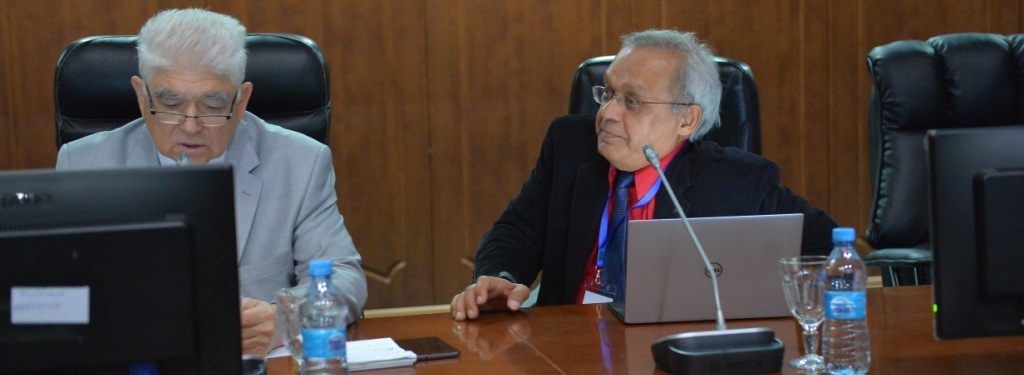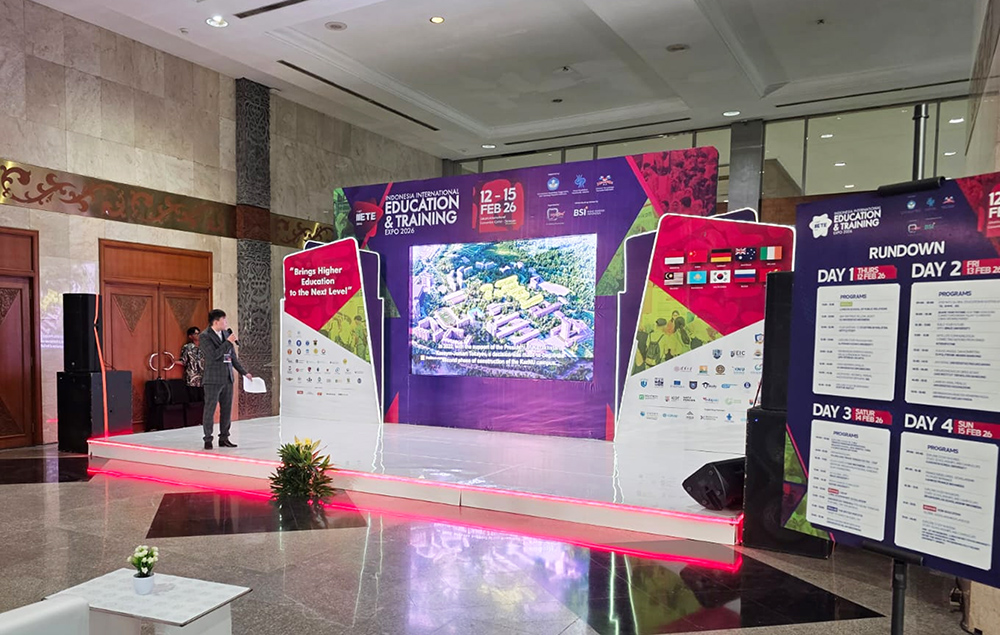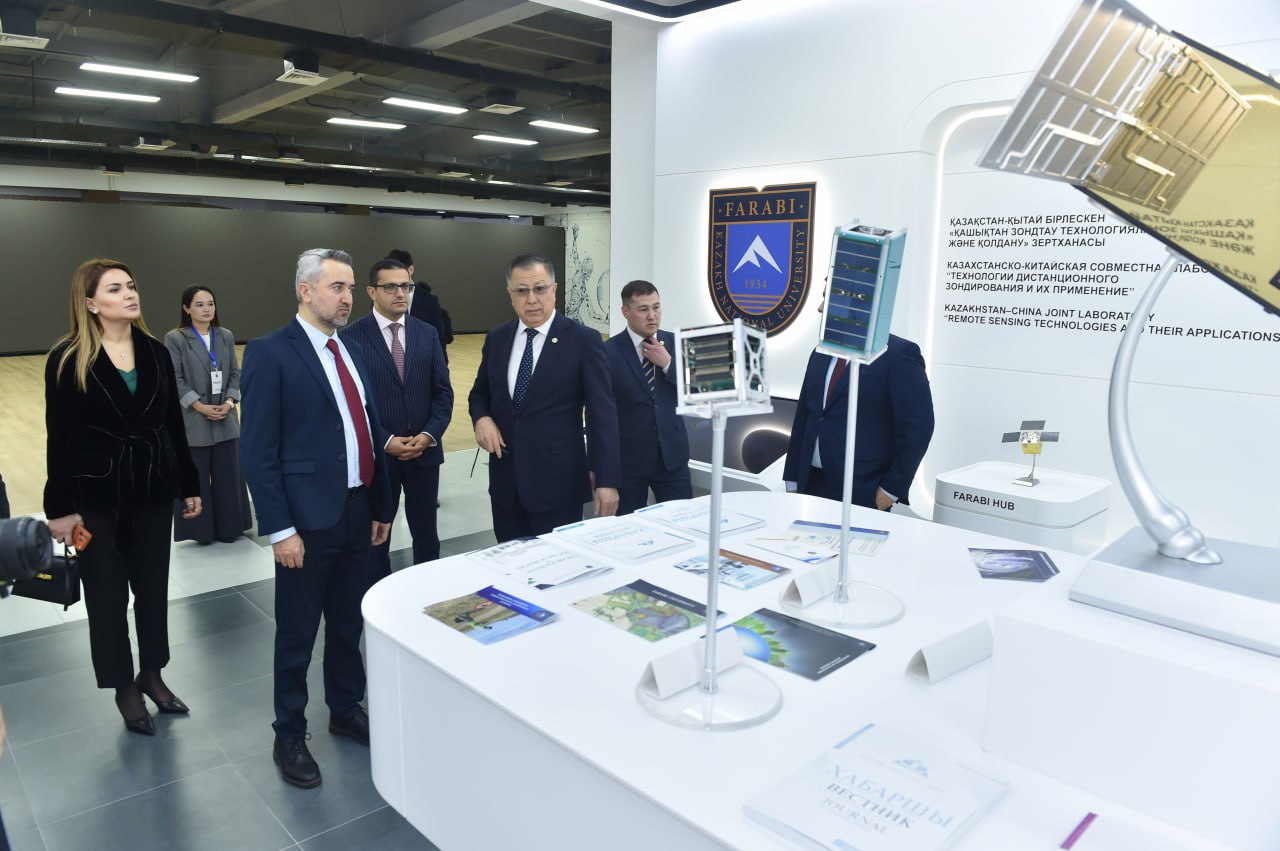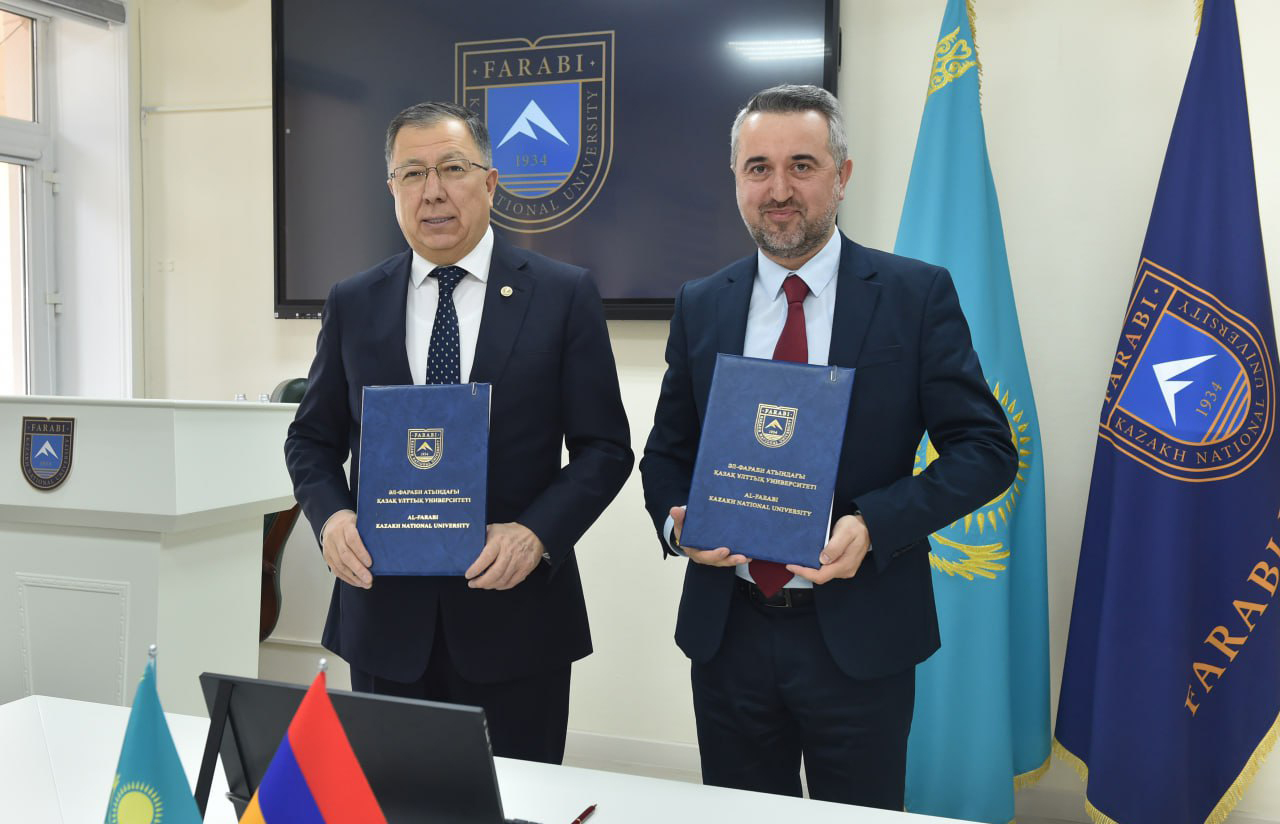Know-how developments in the field of nano-energy

IX International Symposium "Physics and chemistry of carbon materials/ nanoengineering" and the conference "Nano-energetic materials and nano-energy" was held on Faculty of Chemistry and Chemical Technology of al-Farabi Kazakh National University. The main objective of the event was to create conditions for the development of long-term partnerships between the research teams of the CIS countries, European Union, Japan and the United States.
The organizers of this event were the Department of Chemical Physics and Materials Science, "Institute of combustion" and the Institute of Chemical Kinetics and Combustion named after. V.Voevodskiy of Siberian Branch of the Russian Academy of Sciences. The event was held with the financial support and participation of the International Science and Technology Center. While opening the symposium, the organizers expressed their confidence that the symposium should be the starting point in solving the fundamental problems and will give the impulse for the new projects in the field of nano - engineering.
The official report about the obtaining of nanotubes' "carbon forest", from which fibers with unique physicochemical properties can be obtained from, has attracted a particular interest of scientist. These fibers are unique have a very thin structure, it is close the structure of silk strands by their flexibility and at the same time they have a good conductive properties. These fibers based on "forest" of carbon nanotubes are also super-conductors of electrical current and at the same time may act as an absorbent layer for solar water heating collectors.
Professor Zulkhair Mansurov, a prominent scientist of Kazakhstanhas noted that a large part of work related to creation of "nano-forests" based carbon nanotubes was carried by young scientists of Institute of Combustion Problems and al-Farabi Kazakh National University. In addition, it is worth to note the one of the latest developments of the Institute related to the creation of flexible heating elements. The essence of the process lies in the synthesis of carbon nanotubes on fiberglass. Flexible heating elements of this type can be applied to the manufacture of heating clothes for people who are in critical conditions (low temperature): rescuers, soldiers, climbers, tourists, and even astronauts!
Furthermore, this technology could also find applications in the construction field, for example, serving as a "warm floor". The peculiarity of the development is a relatively low cost. The technology allows to obtain an electrically conductive textiles with desired characteristics and properties ", - said one of the developers, PhD-student Gauhar Smagulova.
Special interest appears for the developments in the field of energy-intensive materials at the current stage of development of Kazakhsta's mining industry. Developments of PhD-students of al-Farabi Kazakh National Universitiy Baiseitova D. and Gabdrashova S. in the field of creation of gas-generating cartridges, operating in deflagration combustion mode,has attracted a considerable interest from the point of view of their use in the construction of roads and subways.
In terms of the solutions of applied problemsthe works of Master and PhD students related to unconventional use of the oil, coal and other raw sources with obtaining of petroleum and coal - chemical synthesis products were demonstrated.
An invaluable experience acquired by young scientists, PhD and Master students of al-Farabi Kazakh National University during the discussions, meetings, exchanging by experience with a well-known scientists from foreign universities can act as a main Resolution of the current event. The best works of the symposium and conference will be published as extended abstracts and articles in the following journals: "The burning and plasma chemistry" and "Eurasian Chemico-Technological Journal".
Authors: AnvarAshurov
and Head of the Department of Chemical Physics and Materials Science
Tulepov M.I.


